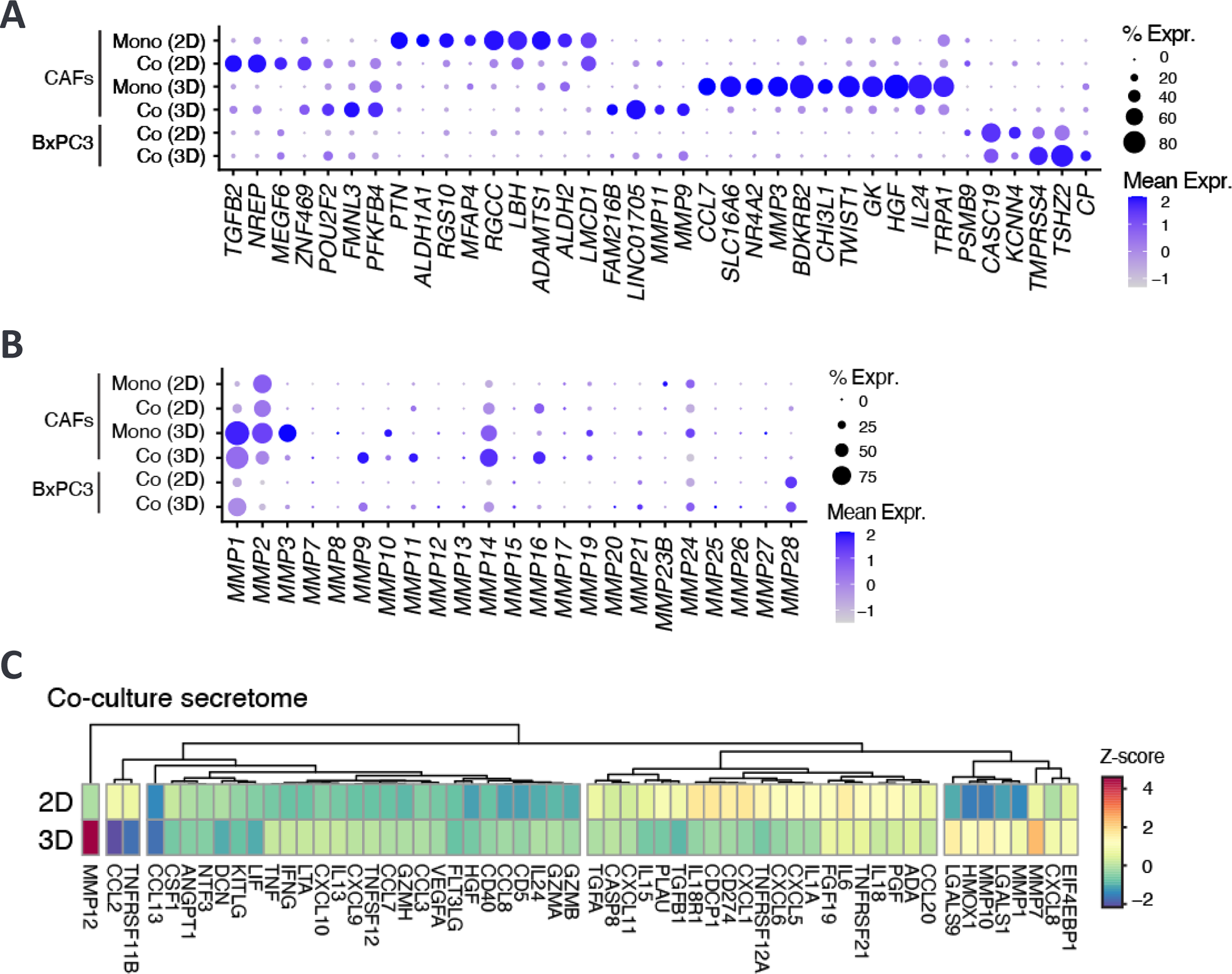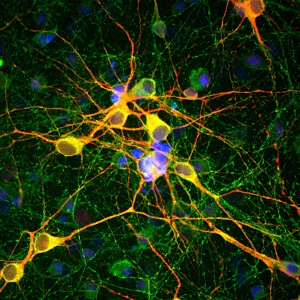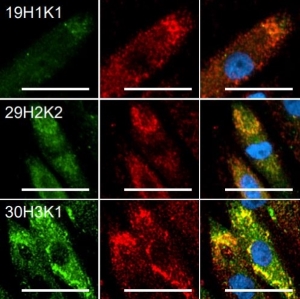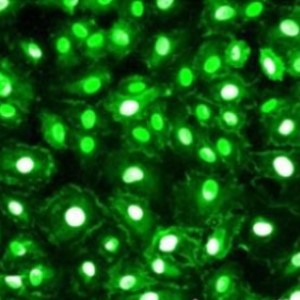Neuromics has a large selection of human cells for cancer research. These cells have been used in impactful and meaningful studies by customers - check all the studies out here. At the center of the selection are our cancer associated fibroblasts (CAFs). Collaborating investigators from Takeda, BioTuring, and BMS utilized our Pancreatic CAFs (cat. CAF118) and CAF Growth Media (cat. CAFM03) in a study released earlier this month.
It is widely accepted that CAFs play a vital role in the tumor microenvironment (TME) and are a frequent target for therapeutics. However, despite successful results in 2D culture, many drug candidates struggle when tested in clinical trials.
Image: Gene expression profile of Neuromics Pancreatic CAFs and BxPC3 cells in 2D and 3D monocultures and cocultures. Different culture conditions lead to changing expression profiles.
In the publication, the investigators examined various culture conditions for CAFs, including 2D and 3D monocultures and cocultures. They found that the expression profile and pro-proliferative effects of CAFs vary substantially depending on the culture condition.
The CAFs show their full potential in the TME when cultured in 3D tumor models. The results suggest that drug discovery research should implement 3D models to get a better-predicted outcome when evaluating drug candidates than 2D culture. Read the full study here.







